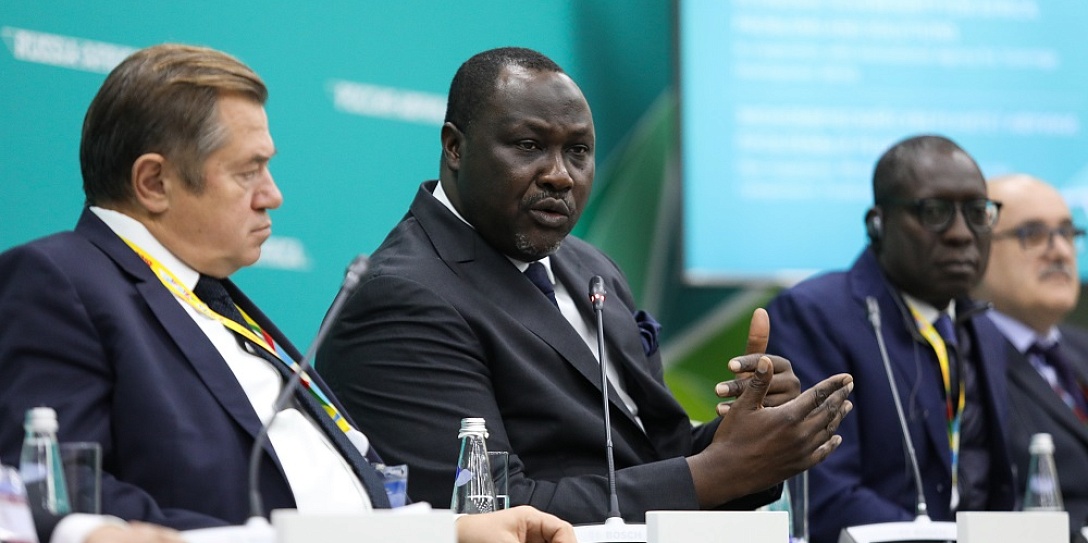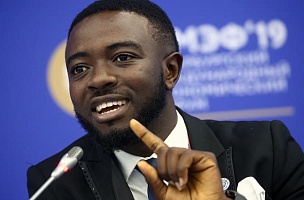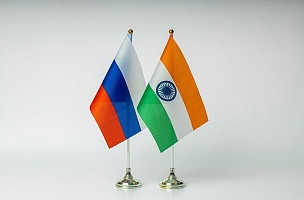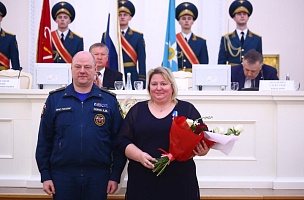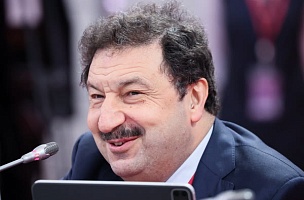KEY CONCLUSIONS
Africa’s potential is largely underrated
«Africa has 20% of our planet’s land, 16% of its population and at the same time only a tiny portion of its GDP — just 2.7% — and even fewer Eurobonds. Here I mean any loan instruments that would allow to develop the economy regardless of political requirements set by international development institutes. <...> Our calculations show that Africa’s colossal natural resources are worth USD 4 trillion. <...> If these resources were used and accumulated and the revenue they bring would be distributed among Africa’s population, the world’s largest mining companies would be African along with the Russian ones,» Konstantin Malofeev, Chairman of the Supervisory Board, International Agency for Sovereign Development (IASD).
«Africa is a continent that is ultrarich and ironically extremely poor at the same time. Today, we are talking about creating new semantics, new grammar and new vocabulary to restore our economy,» Otto Bitjoka, President, Unione delle Comunita Africane d’Italia.
«Moody’s research reveals that national bankruptcy level in Africa is just a little over 5% — it is almost on par with Western Europe. However, due to restrictions, bank interest rates and offshores do not show it,» Samaila Zubairu, President, Chief Executive Officer, Africa Finance Corporation (AFC).
«Rating agencies assess countries based on further investment in them, but our actual resources are much higher than the risks we are usually associated with. Our continent can only be perceived as a whole. USD 1 trillion is expected to be invested in infrastructure parts, so that we could cooperate under our free trade agreement,» Paulo Gomes, Co-Founder, New African Capital Partners; Chairman, Paulo Gomes and Partners.
Russia calls for a higher global role of African countries
«Russia takes a strong and consistent stand on the need for changing the global financial architecture, i.e. a further increase in the role and influence of new global centres of economic growth and redistribution of financial resources in their favour with an emphasis on African states,» Oleg Ozerov, Deputy Director of Africa Department, Ministry of Foreign Affairs of the Russian Federation.
Infrastructure projects should drive the economic growth
«Africa needs USD 50 billion in such areas as energy, transport, and natural resources, so our sponsors strive to do business in such a way that ideas and opportunities would be implemented in infrastructure projects,» Samaila Zubairu, President, Chief Executive Officer, Africa Finance Corporation (AFC).
«First we need to resolve the issue of core infrastructure. We cannot reach our goals in education and industry without core infrastructure,» Samba Bathily, Founder, Africa Development Solutions (ADS); Co-Founder, Chief Executive Officer, Solektra International.
PROBLEMS
Western financial organizations impede Africa’s development
«The IMF and World Bank are the institutes of America’s global financial dominance. The agreements signed between these institutes and African countries allegedly lend money under 2–3%, however they include about 27 essential clauses that set requirements to African governments, which is direct interference in politics and sovereignty of African countries,» Konstantin Malofeev, Chairman of the Supervisory Board, International Agency for Sovereign Development (IASD).
«International banks set hurdles for business development and investment in Africa. They introduce investments bans. Loan agreements with African countries, any funding from the World Bank will not allow Western companies give African countries similar loans. Such a clause in the agreements violates the economic sovereignty of African countries and hinders credit system or Eurobond-based cooperation development. Basically, it means a ban on sovereignty — it blocks the opportunities for further development,» Mikhail Loktionov, Partner, Freshfields Bruckhaus Deringer.
«The structural adaptation programme is a set of conditions proposed by international financial organizations. Their leaders are the World Bank and IMF. These conditions were proposed to developing countries and imposed certain requirements for getting relatively cheap loans from those credit organizations,» Leonid Fituni, Deputy Director for Research, Director, Centre for Global and Strategic Studies, Institute for African Studies, Russian Academy of Sciences.
«More money is pulled from Africa than is invested in it. <...> Africa is a net lender for international financial institutions and not the other way around. <...> Africa’s total GDP [excluding artificial restrictions, — Ed.] should be between USD 3 and 4.7 trillion compared to today’s USD 2.3 trillion. Currently, Africa’s GDP is twice lower because transfer prices allow global corporations to pull money from Africa <...> and then craftily bring it back as financial aid for poor countries,» Konstantin Malofeev, Chairman of the Supervisory Board, International Agency for Sovereign Development (IASD).
Investment deficit in infrastructure
«The bottleneck in our cooperation is the need for more sources of financing for joint projects. We can raise the turnover in mining industry; it is commodities, agriculture, joint projects in processing industry — all of it possible through creating state-of-the-art transport, energy and financial infrastructure. We would hardly be able to double the turnover over five years without overcoming this bottleneck,» Sergei Glazyev, Member of the Board, Minister in Charge of Integration and Macroeconomics, Eurasian Economic Commission.
SOLUTIONS
Creating conditions for attracting investment in African countries
«Achieving economic sovereignty takes entering international private capital markets. Global banks prohibit investing private customers’ money in African countries. Entering international markets of private capital allows to get this money, because investors are ready to invest in Africa. <...> State corporations should develop African countries — that is the only way to make most of the dividends or the natural resource rent stay in the country. <...> Sovereign funds should be created: it helps concentrate all management talents and the political will of country’s leadership in one institute that can choose where to invest sovereign money,» Konstantin Malofeev, Chairman of the Supervisory Board, International Agency for Sovereign Development (IASD).
«Africa decided to establish a free trade zone, which will help us increase domestic consumption, local revenues, as well as concentrate capital for direct investment. That is precisely our goal,» Otto Bitjoka, President, Unione delle Comunita Africane d’Italia.
«Public-private partnership projects can be implemented in Africa and used to review a whole range of problems,» Mikhail (Shamil) Orlov, Chairman, Russian-Egyptian Business Council.
Full use of Africa’s potential
«Together we need to think about a new financial and economic infrastructure that would be focus on developing real economy instead of being based on IMF recipes and Washington consensus,» Sergei Glazyev, Member of the Board, Minister in Charge of Integration and Macroeconomics, Eurasian Economic Commission.
«Together we need to understand how we can change the mindset and work together in a new way being governed by the right assessment of our resources and without getting fixated on mining and mineral resources. We need to assess water resources and mangroves as well. Environment is an important aspect. As a continent we consume hydrocarbon emissions and we need to be viewed as a global player in terms of environment regulation,» Paulo Gomes, Co-Founder, New African Capital Partners; Chairman, Paulo Gomes and Partners.
«We have a resource potential. If we fully develop it, we will be able to take the electricity cost down to USD 0.05 [per kW, — Ed.]. Development requires USD 80 billion. These USD 80 billion will help us save 50 billion. Transport in Africa costs more than on any other continent. Transporting a container over 1,400 km costs USD 3 thousand. How can we be competitive with such prices? The cost of a unified African railway is USD 100 billion, while its annual revenue will be as high as USD 10 billion,» Samba Bathily, Founder, Africa Development Solutions (ADS); Co-Founder, Chief Executive Officer, Solektra International.
For more information, visit the Roscongress Information and Analytical System at roscongress.org


